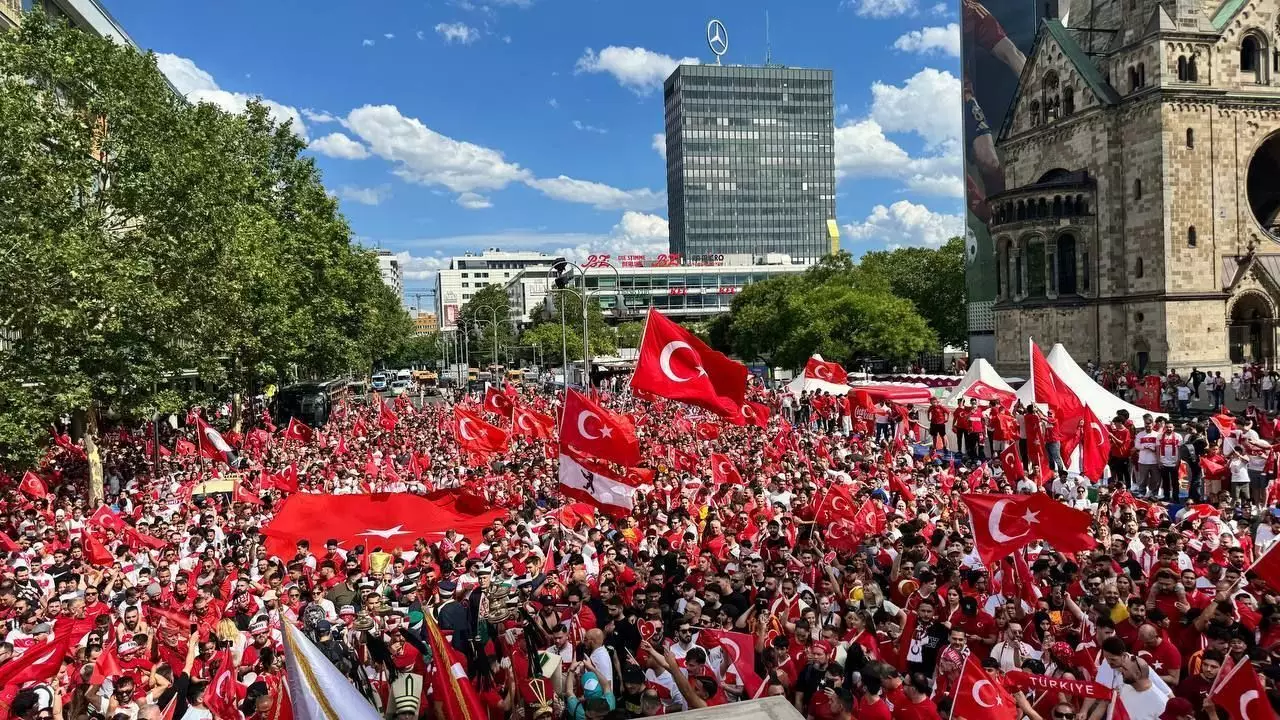Turkish supporters who were heading to the European Championship quarterfinal against the Netherlands were observed making a nationalistic hand gesture that resulted in a player being banned from the match. Berlin police reported that the fans were heavily displaying the gesture, prompting the authorities to intervene. The fans were requested to proceed to the game individually as long as they possessed a valid ticket. According to police spokesperson Valeska Jakubowski, a large number of people making the gesture transformed the football march into a political demonstration, which led to the intervention by the police.
Context of the Controversial Gesture
The gesture being made by the Turkish fans is associated with Turkish nationalists and is linked to the ultra-nationalist organization known as the Gray Wolves. While showing the gesture is not illegal in Germany, there were instances where arrests were made. The situation was fluid, and some fans were taken into custody, even though the reasons for their detainment were not entirely clear. The controversy escalated when Turkey defender Merih Demiral received a two-game ban from UEFA for making the gesture in a previous match, causing tensions between Turkey and Germany.
Political Backlash and Support
The ban on Demiral meant that he would miss the quarterfinal match and potentially the semifinal if Turkey were to advance. The Turkish Football Federation and government officials criticized the suspension, with President Recep Tayyip Erdogan altering his plans to attend the match in support of the team. Erdogan defended Demiral, stating that the player was merely expressing excitement after scoring a goal. Additionally, Turkish “ultras” urged fans to continue making the gesture during the national anthem before the game and potentially throughout the match.
The incident involving the nationalistic hand gesture at the European Championship quarterfinal highlights the intersection between sports, nationalism, and politics. What was intended as a display of support for the Turkish team has now become entangled in diplomatic tensions and UEFA sanctions. The ongoing controversy serves as a reminder of how actions within the realm of sports can have broader implications beyond the field.


Leave a Reply